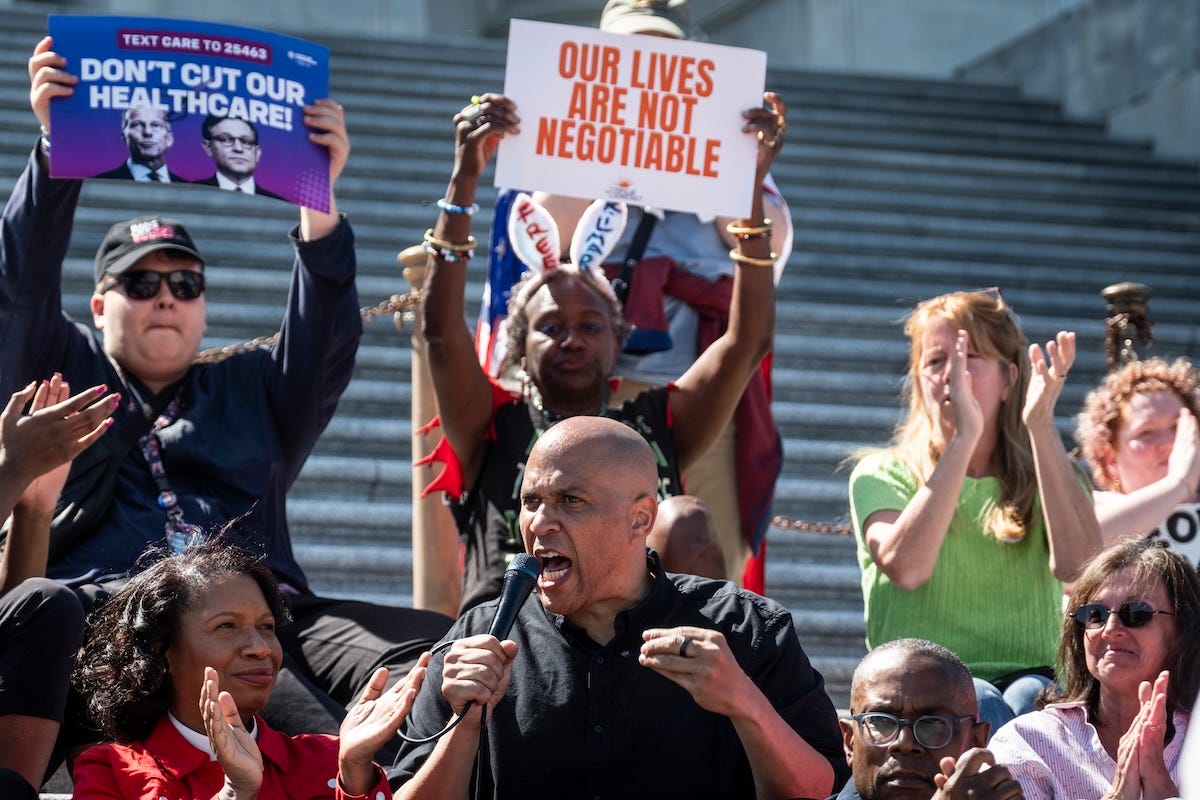How To Intensify Opposition To Trump-GOP Medicaid Cuts
Republicans might do it despite the human and political consequences; they need to fear what will happen after they take that vote.
If you think about it in terms of compassion or even just raw political logic, the idea that Donald Trump and Republicans in Congress might enact enormous cuts to Medicaid, in order to partially offset the cost of trillions of dollars in tax cuts for the wealthy, is insensible.
Medicaid is popular, more so now than when President Obama expanded it to tens of millions of lower-income Americans through provisions of the Affordable Care Act. Millions of those Americans are Trump voters. Even if you’ve never been a Medicaid beneficiary, there’s an excellent chance you know someone who is, or was at some point.
The cost of living was a huge issue in the 2024 election. But between his tariffs and his profligate tax cuts, Trump’s actions and designs in office thus far promise to reduce living standards. Now he apparently wants to tell poor Americans: Not only will you be paying more for staple goods, you’re going to lose your health care, too. Even retirees and people with private health plans will suffer when cuts to Medicaid force rural hospitals to close their doors. In all of this, some people will lose everything; others will die.
Oh, and did I mention that we’re likely in the early days of another Trump recession? So in the midst of recession, when textbook economics cut hard against austerity, Republicans want to deepen the downturn by making things more precarious for the poor than they already are.
With all this on the line, I still think it’s pretty likely that they’re going to do it. Consider:
Trump is flailing. He’s signed very few bills and none of note. He (and Republicans in Congress) could easily talk themselves into doing something to arrest the slide into failure. Gutting Medicaid is “something,” even if the material and political consequences would be terrible.
Many Republicans in Congress are functionally immune from political accountability, and the rest may wonder how free and fair the 2026 elections will really be.
They still hate Obamacare, and Trump still hates having failed to repeal it eight years ago.
The debt limit will have to be increased in the coming weeks, and Republicans can only exempt it from a filibuster by bundling it into the same budget-reconciliation bill they want to use to cut Medicaid.
They can also play funny business with the phase-in schedule for the spending cuts. Tax cuts: extended right away. Medicaid cuts: Don’t take effect until, say, January 21, 2029. This would delay the substantive consequences of the cuts for years—possibly until after the coming Trump recession is over, long after next year’s midterms, all the way until Trump is out of office. Another mess for Democrats to clean up.
PIG JOHNSONS
I don’t meant to imply that it’s a done deal. Many Republicans in Congress seem deeply worried about the course they’re on. Ron Johnson, the extremist Republican senator whose state of Wisconsin doesn’t even have Medicaid expansion, says what’s on the table now is a non-starter for him (though he pretends to oppose the bill from the right).
Meanwhile Democrats are completely united against the GOP budget, which has given them a head start in the battle for public understanding of the issue. And unlike most issues, even the leadership is primed to fight over health care.
That makes it a proper square dance. Republicans theoretically have the power to do whatever they want to Medicaid. But they’ll need near-total intra-party unity, against public opinion, a unified opposition, and basic decency. Just yesterday, House Speaker Mike Johnson claimed, somewhat equivocally, that he’d ruled out two steep and especially partisan cuts. Other reporting suggests he’s taken renewed interest in a different approach.
Hopefully Republicans will fail to pass anything, and if they fail, it will be due in part to spirited opposition.
But for the moment at least, Democratic opposition looks indistinguishable from the campaign to save the ACA in 2017, when John McCain gave repeal thumbs down, and Republicans limped away in defeat. It does not account for the likelihood that this fight will end differently
Two alternative scenarios concern me in particular this time:



